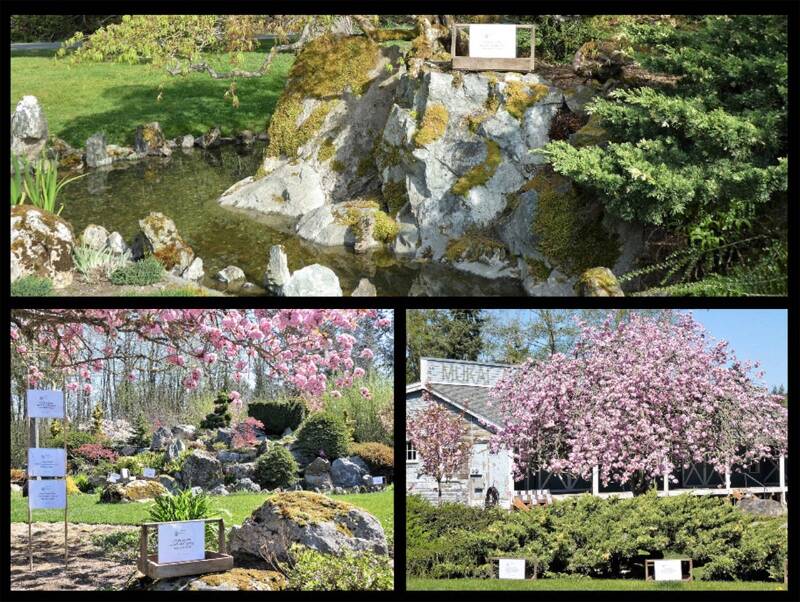The annual glory of Mukai Farm & Garden’s Haiku Festival — with haikus placed among the exquisite blooms and spring foliage of the Mukai property — will be officially unveiled at an awards ceremony at 2 p.m. Sunday, April 28, at Mukai, 18017 107th Ave SW.
The festival is now in its fifth year, and has been a hit from the start with both viewers and poets worldwide. Last year, a call for haikus garnered more than 500 hundred haiku submissions from islanders as well as poets from 13 countries.
This year, festival organizer Kay Longhi announced a new rule: poets were asked to limit themselves to one entry, so that everyone’s work could be better displayed on the grounds of Mukai.
“So many people enjoy strolling the garden to read the haiku each spring and summer, but the large number of [submissions had] become overwhelming,” she said.
At the award ceremomy on Sunday, Haiku Festival competition winners in numerous categories will be announced by poet, previous winner and contest judge Ann Spiers, and there will be readings by distinguished poets Shin Yu Pai and Thomas Hitoshi Pruiksma.
Hitoshi Pruiksma, a beloved resident of Vashon and teacher, magician, poet, and author, recently published a translation of a classical Tamil masterpiece on ethics, power and love. On Saturday, he will launch “Taller Than A Mountain,” an online course on the Kural.
Shin Yu Pai, the current Civic Poet of Seattle, is a writer, host, and producer of “Ten Thousand Things” — a chart-topping podcast on Asian American stories for KUOW Public Radio, Seattle’s NPR affiliate station. The show has won two Golden Crane Awards from the Asian American Podcasters Association and a silver prize from the Signal Awards.
Her work has appeared in publications throughout the U.S., Japan, China, Taiwan, the UK, and Canada.
The author of 13 books, she has recently published a haiku comic book, “Less Desolate” — 10 sections of which will be displayed at Mukai Farm & Garden as part of her first-time visit to the cultural hub on Vashon, she said.
“Less Desolate,” a collaboration with Justin Rueff that explores themes of climate change, civil unrest, protest, activism, homelessness and life during the the COVID-19 confinement, has been called an important addition to the canon of Asian American literature rooted in the Northwest.
Another haiku collection published in 2008, “Haiku Not Bombs,” was a collaborative project Pai undertook with a collective of friends.
In an interview last week, Pai said that she was looking forward to coming to Mukai for the ceremony — a historic place she has heard about for years.
“I’m excited to see the farm and the how the people have preserved that place,” she said.
She is also looking forward to a reunion with Hitoshi Pruiksma, a poet she has previously worked with and knows well. Speaking of the intersection of magic, ritural, music and magic of poetry in Hitoshi Pruiksma’s work, she said she has been impressed by the “depth of complexity of all the things he does as an artist.”
The haiku form — centered on the precision and compression of language — allows Pai to engage in daily observations and flex her poetic muscles, she said.
“It’s a way to take a visual snapshot of a moment,” she said
Find out more about Shin Yu Pai’s work and life at shinyupai.com.


